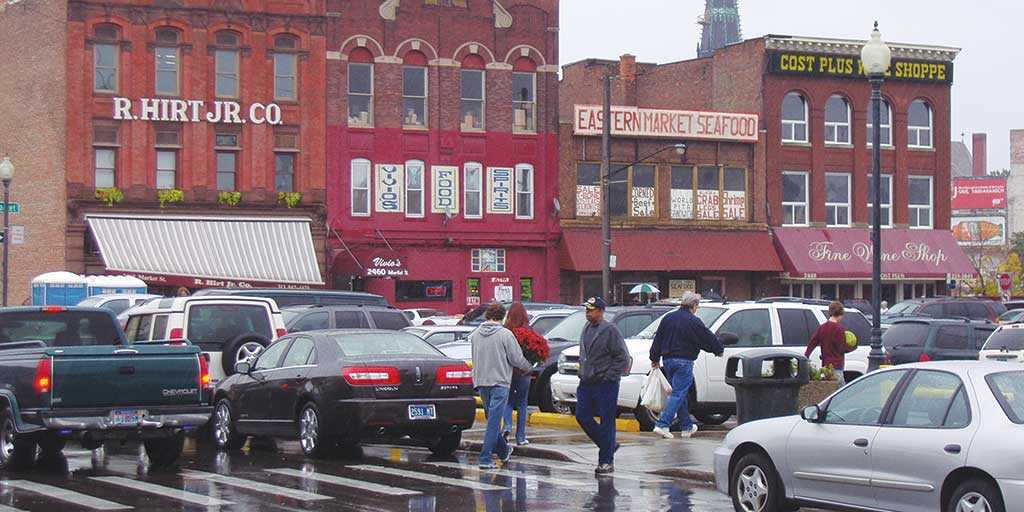Detroit Hustles Harder
By Allison Nim
If you’re very familiar with Detroit, you’re probably familiar with that phrase. If you’re not, the audacity of it might reinforce the city’s universally held nefarious reputation. But if you appreciate Detroit, you probably visualize a different kind of hustle. You might picture the countless businesses eagerly popping up downtown, drawing out young professionals to relocate to a city primed for rejuvenation. You might see the riverside condos, refurbished apartments, and numerous housing initiatives developed to accommodate the surge of people drawn to the city — not just for the job prospects, but for the inexplicable way it’s harrowing past and lofty potential captivate you. You will probably feel the excitement and ambition circulating behind the scores of endeavors, created citywide by people who are taking transformative measures out of the uncertain political landscape and into their own hands. Woodward Corridor Initiative, The Kresge Foundation, The Heidelberg Project, Penrose Co-Op, Eastern Market; these are just a few of the philanthropic efforts perpetuated by a collective confidence that there is still limitless potential in a once great, down-but-never-out city. And like a great economic domino effect, this confidence is feverishly spreading and bringing with it heightened interest and, subsequently, even more potential.
Take, for example, Eastern Market. A Detroit staple established in 1891, the six-block public market provides an array of produce, game, seafood, spices and more — attracting tens of thousands from the far ends of metro and suburban Detroit, to all over Michigan, Canada and beyond each Saturday. As individuals and businesses patronize, embracing the recent trends of procuring locally sourced produce and meat, the success of the market and its purveyors has amplified. Popular restaurants have followed suit, highlighting Eastern Market as their source for ingredients as a menu selling point. A unique potential lies here in the opportunity to take advantage of urban farming, a phenomenon offering a multi-pronged effect. In addition to providing locally grown, fresh and healthy food, urban farming also poses a natural, productive solution to Detroit’s longstanding urban sprawl and blight problem. Already occupying a small portion of Detroit’s footprint, urban gardens and small co-op farms are not new to Detroit. However, when coupled with the recent demand and development in city center real estate, along with federal tax credit programs for healthy food financing, an innovative approach emerges which can address urban blight, community investment and development, and, ultimately, an increase in the severely depleted city income tax base.
A short two-part series will be featured in the following months highlighting the development possibilities stemming from combining the efficiencies of urban farming, co-ops, and real estate expansion, illustrating just a fragment of the potential teeming within. To put it lightly, Detroit has endured setbacks in the midst of all of its successes, but it has also learned to handle them inimitably. In this city, innovation has always found its match in capability — whether in the historical roots of its infamous auto industry, or through modern opportunities arising each day. Ingenuity, diligence, and perseverance; these are how real Detroiters rebound and champion their city … and hustle has a much different connotation here.

